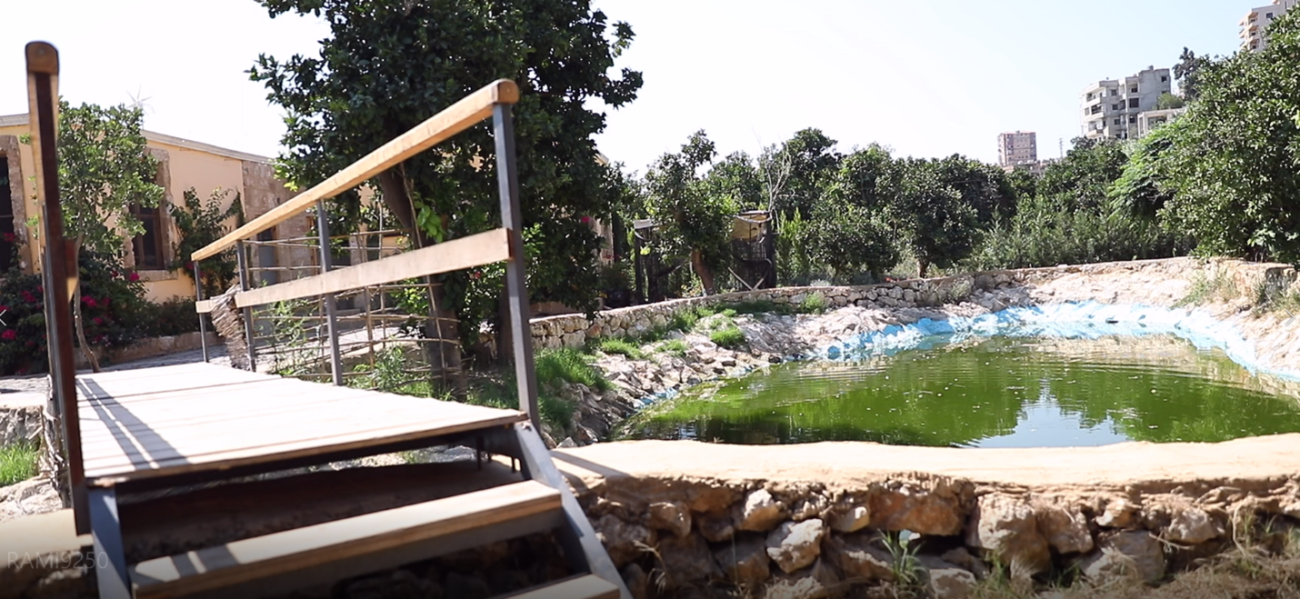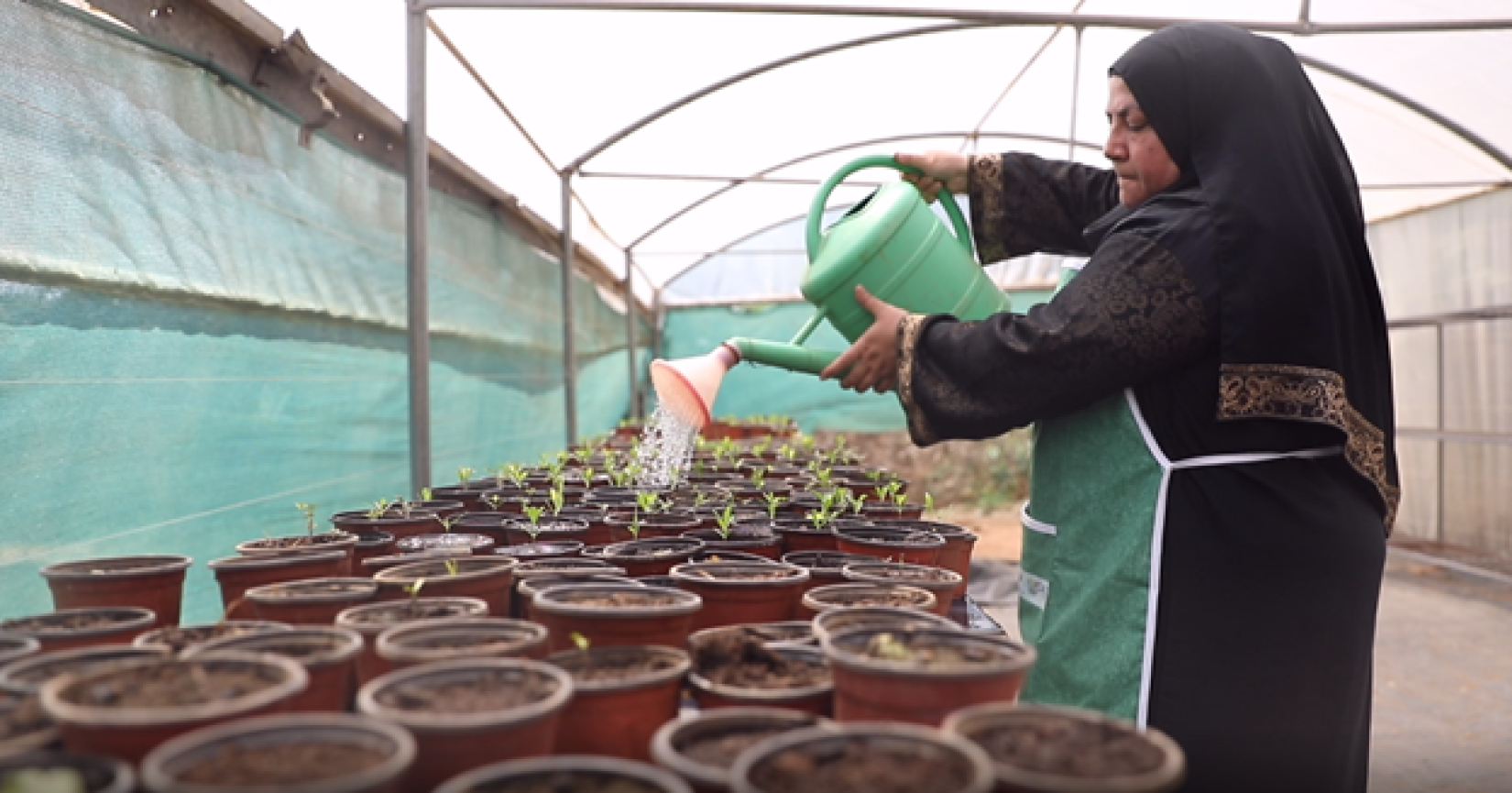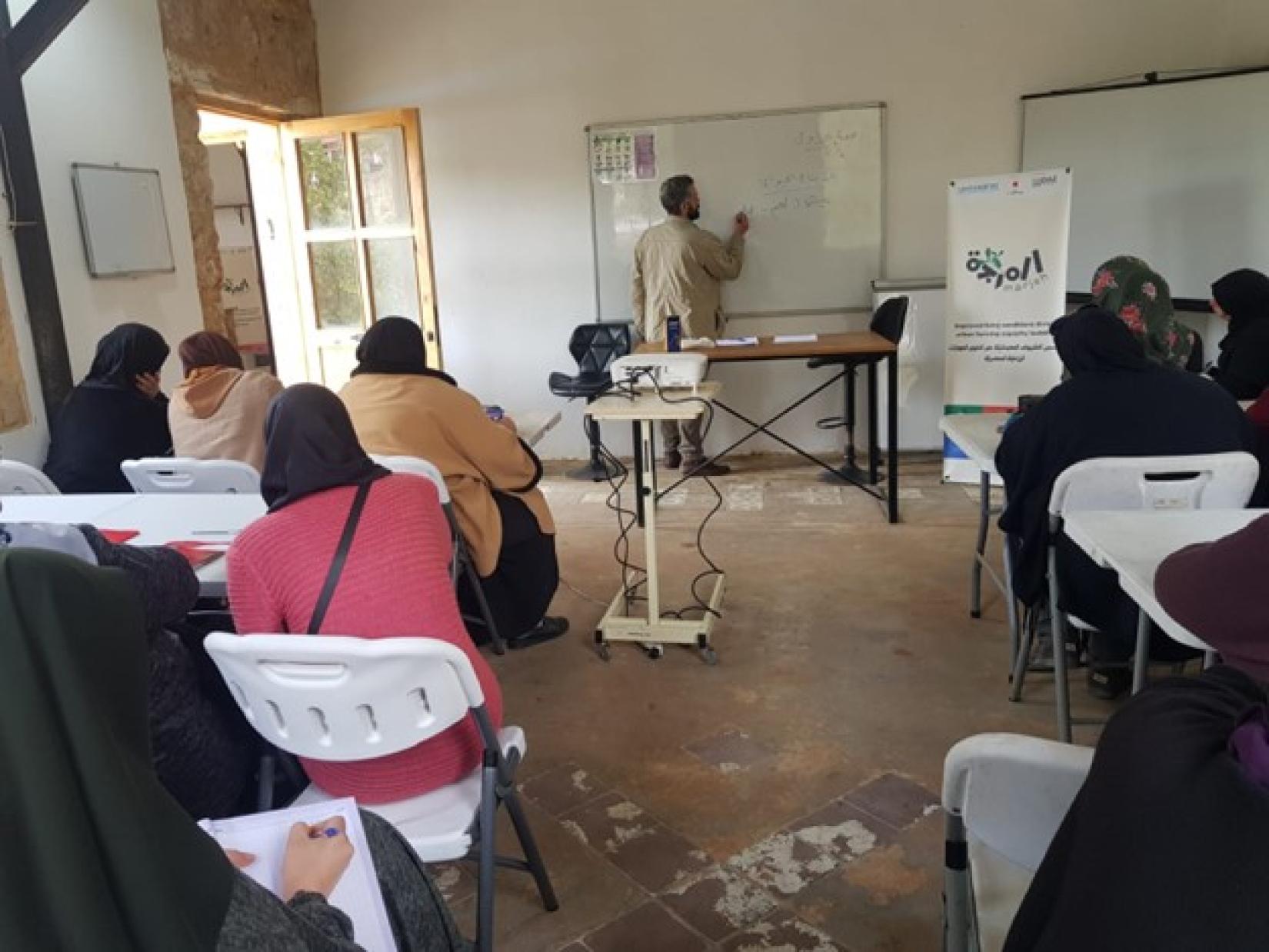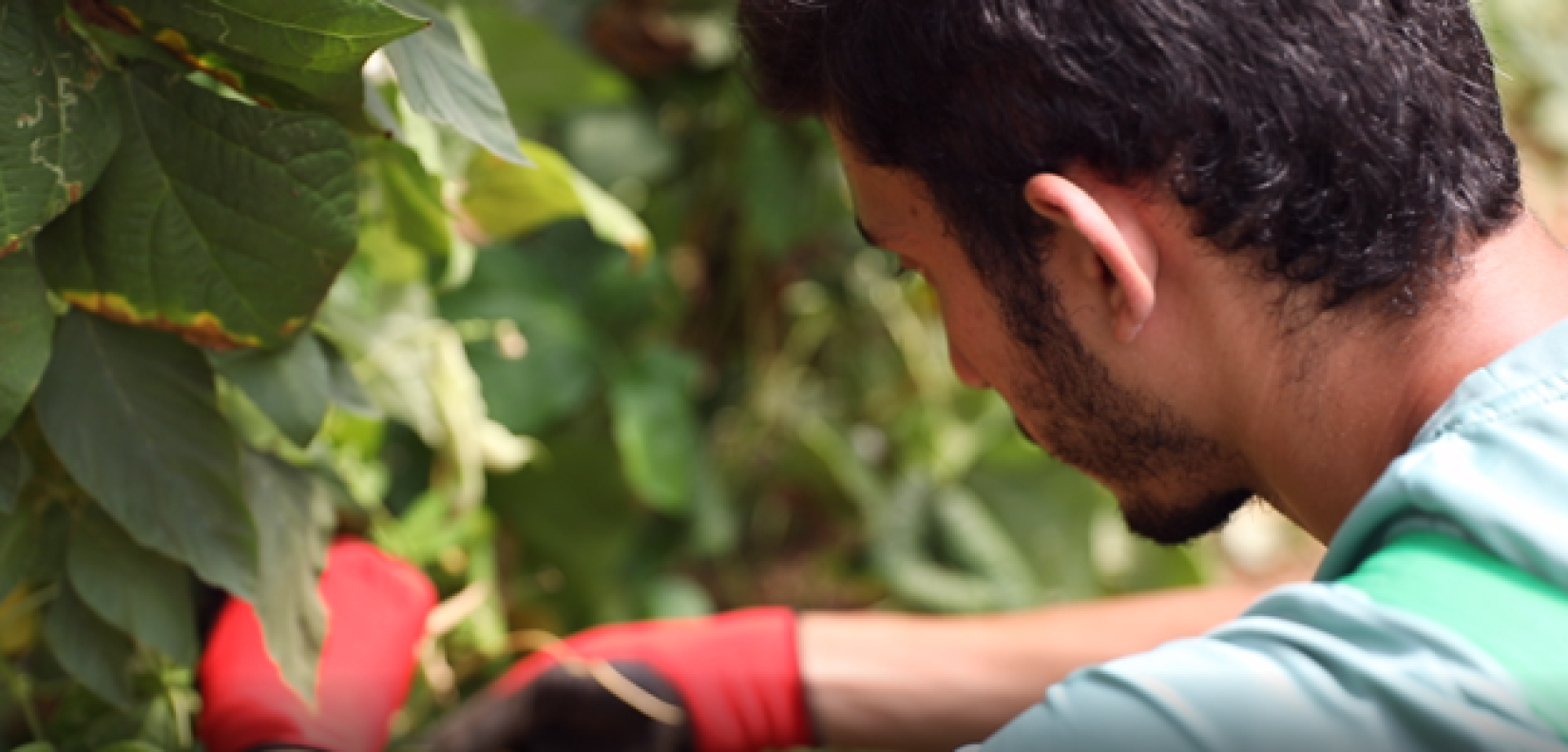Developing Urban-Farming Capacities of Youth and Women of Tripoli

The United Nations in Lebanon is Developing Urban-Farming Capacities of Youth and Women of Tripoli
Walking through the narrow streets of Shalfeh, a vulnerable urban community in the Abu Samra neighbourhood in Lebanon’s northern city of Tripoli, where dreams of a better life seem distant, you reach a green oasis amid urban chaos.
In Shalfeh, live Yamama Al Yakhni and Omar Khaled. Yamama is a mother of four who did not complete her education but has always dreamt of studying and graduating. Yet, the daily grind of life, caring for her children, and navigating the complexities of urban living had made those dreams seem almost impossible. As the heavy burden of unfulfilled ambitions crushed down on her, Yamama found herself teetering on the edge of depression. “I left school and got married early. I took care of my family. Every time one of my children graduates, I have mixed feelings. I am happy for them, but also sad wondering if I ever will study and graduate?” Yamama says.
Omar is a university student who invested his time in studying, but this came with a downside as he spent most of his time at home; hence, negatively affecting his mental well-being.
“In this area, people my age tend to waste their time on useless activities. I did not want to follow in their footsteps.” Omar says.
It was in these moments of difficulty that both Yamama and Omar first heard about the project “Marjeh”. Marjeh is a multi-sectoral project that aims to promote urban farming and adequate water and renewable energy solutions within the urban community of Shalfeh located in Abou Samra, Tripoli by the United Nations Human Settlements Programme (UN-Habitat) funded by the Government of Japan.
The project includes the development of women and youth’s skills in urban farming with support from Dar Al Zahraa Organization; establishment of an urban farm in the area for trainees to apply their knowledge with support from the United Nations Food and Agriculture Organization (FAO) and the Islamic Awkaf Department in Tripoli; provision of clean water and renewable energy to public facilities such as schools and a health dispensary; raising community awareness with regards to improving food security and hygiene and sanitation within the community and at home in the neighbourhood of Shalfeh.

From Despair to Empowerment
With newfound determination, Yamama and Omar registered in the project’s sessions to gain proper skills and techniques to undertake urban farming activities such as proper planting, watering, harvesting, composting, packaging, and marketing. Acquiring these skills helps them improve their self-reliance and become equipped to generate income and therefore improve their living conditions.
As she was attending daily theoretical and practical sessions within this project, Yamama gained knowledge and skills related to cattle breeding, poultry farming, beekeeping, and cheese-making. “I now know how to make different kinds of cheese like halloumi and mozzarella. I even learned how to make ketchup and nuggets.”

“I acquired skills as we learned to cultivate crops efficiently, and trim trees, and we identified agricultural misconceptions related to agricultural practices that were spread in our area. The expertise-sharing made it a rich experience; we were like one family,” Omar says.
Yamama felt a sense of purpose she had longed for. “I re-lived the childhood school experience. It’s a very nice new environment, I have mentors and mates. I get up early in the morning to prepare myself with a goal to achieve. I am happy that I have a sense of achievement and purpose,” Yamama says.
Omar found the haven he was searching for away from his studies, “I met new people, we engaged and initiated discussions, talks, and activities under this project. We exchanged excitement and enjoyed our time while working together. Activities did not feel tiring but fun instead.”

Participants like Yamama and Omar upon the end of the first and second phases of this project graduated and received kits to help them sustain the effect of the trainings they attended and equip them with the right tools to take it forward. Omar, who has dreams of making a tangible impact on his community, had an idea for a personal project. Through the agricultural trainings he undertook and the friendships he built and will count on, he is now capable of proceeding with his project. “With the guidance of mentors and access to modern techniques I acquired skills I can use to proceed with this project,” Omar says.
“I was happy, and this was reflected in my well-being. I achieved my dream of graduating. I requested the cheese-making kit as a graduation gift and I plan to start from my own house a project to bring additional financial income to my household,” Yamama says.
A fresh start
In the heart of the city, this urban farming intervention has become a green oasis of hope, fostering growth and empowerment.
“I am more confident and empowered. Before the project I was devastated, now I feel a sense of purpose. When I reached the age of 40, I thought this was the end; quite the opposite now. I say this is the starting line,” Yamama says.
“Marjeh project pushed me to get started,” Omar says.



